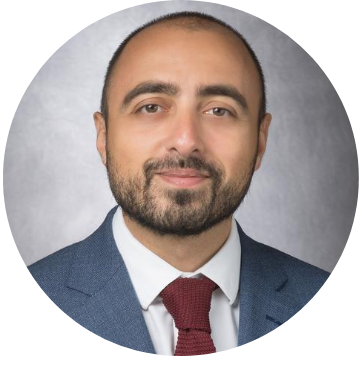Researcher Spotlight: Paolo Strati, MD
University of Texas M.D. Anderson Cancer Center

Patients with relapsed or refractory large B-cell lymphoma (LBCL) treated with chimeric antigen receptor (CAR) T cells have increased their cure rate from 10 percent to 40 percent. After treatment, many patients experience toxicity, namely cytokine release syndrome (a generalized and life-threatening inflammatory status) and neurotoxicity (occurs when neurotoxicants alter the regular activity of the nervous system). CAR T cells induce macrophages to produce substances, such as interleukin-1 (IL-1), triggering toxicity. IL-1 can be blocked with the use of anakinra, a medication typically used for the treatment of patients with rheumatoid arthritis. The highest levels of IL-1 are measured the first week after CAR T infusion, and prophylactic (rather than therapeutic) use of anakinra may prevent toxicity in these patients.
Dr. Strati’s LRF grant will conduct a phase II study that will investigate the safety and efficacy of anakinra, given the first seven days after CAR T infusion, in patients with relapsed or refractory LBCL. Blood samples will be collected and monitored to better characterize changes occurring in the immune microenvironment after CAR T infusion and identify new strategies to mitigate CAR T cell-associated toxicities. “If successful, this strategy will make CAR T safer for these patients, decreasing the rate of toxicity-related deaths, extending its access to elderly patients and those with comorbid health conditions, and favoring its use in the outpatient setting–with a significant advantage for the healthcare finances,” says Dr. Strati.
Dr. Strati received his MD from the University Vita-Salute San Raffaele in Milan, Italy, where he also completed a residency. Dr. Strati is now an Assistant Professor in the Department of Lymphoma/Myeloma and the Department of Translational Molecular Pathology, Division of Cancer Medicine at the University of Texas MD Anderson Cancer Center, and a 2019 LRF Scholar. Fascinated by the complexity and dynamicity of lymphocyte biology, and the possibility to cure patients affected by lymphoma. Dr. Strati decided to begin his career in clinical research. During his early academic career and training at the University of Texas MD Anderson Cancer Center, Dr. Strati contributed to the clinical development of lenalidomide (Revlimid), an oral immunomodulatory agent, for patients with indolent B-cell lymphoma, under the guidance of Alessandra Ferrajoli, MD and Tait Shanafelt, MD. More recently, under the mentorship of Dr. Sattva Neepalu and Scientific Advisory Board member Dr. Christopher Flowers (University of Texas MD Anderson Cancer Center), Dr. Strati has been focusing on projects and clinical trials aimed at manipulating macrophages, through the targeting of CD47/SIRPα for the treatment of patients with relapsed or refractory DLBCL. “The latter gained me further insight into macrophage biology, other than the opportunity to be selected for the LRF mentoring program, an amazing educational and career development opportunity,” says Dr. Strati
“The LRF Career Development Award will provide me with additional protected research time, which will help me to work on the projects, grants, and manuscripts that will lead me to academic independence,” he says. “It will also introduce me to a group of lymphoma experts that will provide me with extra-mural mentorship and guide me through the tortuous pathways of academic life.” Dr. Strati remarks 10 years from now he hopes to have contributed to the development of a new treatment strategy for patients with B-cell lymphoma, where we can spare the use of chemotherapy by manipulating the tumor microenvironment. He envisions this new treatment strategy accessible to all patients, including elderly individuals with comorbidities, and patients in need.


